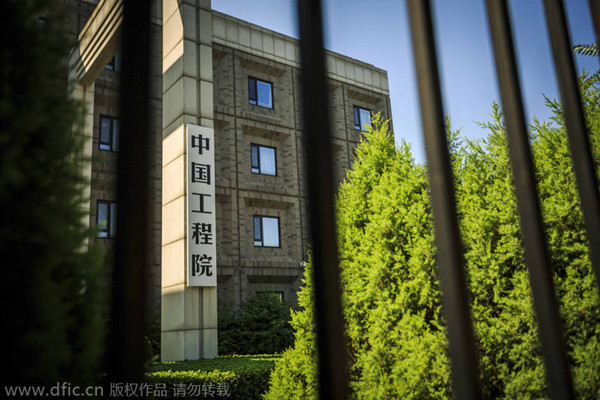Science academy polls have integrity issues
Updated: 2015-01-08 08:05
(China Daily)
|
|||||||||||
 |
|
A view of the Chinese Academy of Engineering in Beijing on Jun 11, 2014. [Photo/IC] |
Complaints about malpractices in electing members to the Chinese Academy of Sciences and the Chinese Academy of Engineering had largely been treated as unwarranted speculation until the indictment of Zhang Shuguang, the right-hand man of the now disgraced former minister of railways.
The two proud institutions never even bothered to respond seriously to the corruption allegations.
Given Zhang's confession that he paid more than 23 million yuan ($3.75 million) in bribes for his two bids to become an academician with the CAE, both institutions now want to extricate themselves form a credibility crisis.
In spite of the continued absence of any official account of the whereabouts of Zhang's 23 million yuan, both institutions have decided to make changes in their upcoming biennial elections. And they appear more open about the process this time around.
In answer to concerns that the supposedly academic institutions are becoming bureaucratized, both academies have moved to restrict access for incumbent officials.
According to new rules introduced by both CAS and CAE, "in principle", officials above the division level will be disqualified from the elections. Candidates' employers and their parent institutions will no longer be allowed to make recommendations. The awarding of an academicianship will be subject to endorsement by a full session of each academy. And incumbent academicians who accept bribes in such elections will face disciplinary actions, even dismissal.
Considering that those with management roles or administrative titles have enjoyed obvious privileges in previous elections, institutional recommendations have exerted unfair influence on the process, and that the current peer review mechanism has left room for unethical dealings, the new rules will surely make differences.
But they are far from being the game-changers that are truly needed. Both academies have had leeway reserved for some officials. So for whom will the yardstick be bent? The extremely brilliant? Powerful? Moneyed? Or what? There is a backdoor for rent-seeking.
While some officials may be competent technocrats, once they are accepted by the academies they should have different career goals and be committed to their new functions.
Unfair competition not only incubates moral degeneration, it ruins the country's dream of scientific and technological greatness. The deeper problems cannot remain untouched.
Related Stories
Top academies ban govt officials from membership 2015-01-07 15:59
Ex-railway official sentenced to death 2014-10-17 11:06
Sentences handed down to 3 ex-railway officials 2014-12-17 07:44
Corrupt rail official's mistress gets prison 2014-12-03 07:45
Today's Top News
Credit Suisse's China partner under investigation
Belarus' Domracheva named Europe's Athlete of 2014
China's influence in global film market expanding: report
Euro slumps amid concern over Greek exit after election
German gallery presents Calligraphy in Chinese Contemporary Art
Export quota system for rare earths abolished
New York City community rallies around Liu family
Stock link bid for HK, Shenzhen
Hot Topics
Lunar probe , China growth forecasts, Emission rules get tougher, China seen through 'colored lens', International board,
Editor's Picks

|

|

|

|

|

|





